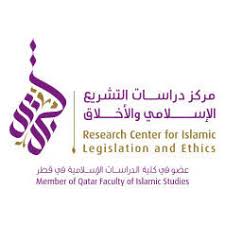The Islamic Principle of Kafala as Applied to Migrant Workers: Traditional Continuity and Reform
The paper is an attempt to identify the continuities and discontinuities between the religious Islamic notion and practice of

The Research Center for Islamic Legislation and Ethics (CILE), leads the reform and renewal of contemporary Islamic legal and ethical thought and behavior by contributing a sustainable ethical framework for addressing contemporary global challenges. CILE’s initiative is maintained by the production, dissemination, and application of Islamic ethical thought and behavior.
Launched in January 2012, CILE specializes in Islamic Legislation and Ethics, with a focus on applied ethics in the fields of Methodology, Arts, Environment, Economics, Education, Food, Gender, Media, Bioethics, Migration & Human Rights, Politics and Psychology.
CILE has developed the following methodological approaches to guide its work:
CILE also launched its publication activities in three languages; Arabic, English, and French, with the series of “Islam and Applied Ethics” with HBKU Press, online international peer-reviewed “Journal of Islamic Ethics” with Brill, based in Leiden in the Netherlands, to be published in French by Tawhid, and in Arabic by Al-Shabaka.
The paper is an attempt to identify the continuities and discontinuities between the religious Islamic notion and practice of
The Oxford Handbook of
There has been a tendency to portray Muḥammad Rashid Rida (1865-1935) as a mere transmitter of the ideas of Muhammad Abduh (1849-1905) and loyal defender of his thought. Albert Hourani described Ridá as "Abduh's liege man: the mouthpiece of his ideas, the guardian of his good name, and his biographer." Rida's ideas were treated as an extension of ' Abduh's thought and in line with the framework which the latter designed for reforming and reinvigorating
The past few years have carried both great hopes and deep frustrations for the future of democratization in Egypt. The country witnessed a significant national referendum; two major elections, presidential and parliamentary, in September and November–December 2005 respectively; the formation of a pro-reform movement; and a remarkable political vitality. It is uncertain, however, whether these developments will place Egypt on the threshold of a sustainable democratic transformation.
Islamic movements in North Africa have historically been distinguished from their counterparts in other parts of the Arab world because they have demonstrated a marked willingness to work within the political system and have at times even been officially recognized and allowed to participate in local and national elections. As a result, Islamic thinkers from the Maghrib have produced important writing about the role of
When Western influences began to pervade the
The Oxford Encyclopedia of
Many residents of the Middle East - and more recently, Western powers - have placed great hope in democratization in the region. Yet authoritarianism remains the norm and movement towards democracy is both slow and uneven. The Struggle over Democracy in the Middle East examines democracy and democratization in the light of regional realities rather than the wishful thinking of outsiders.